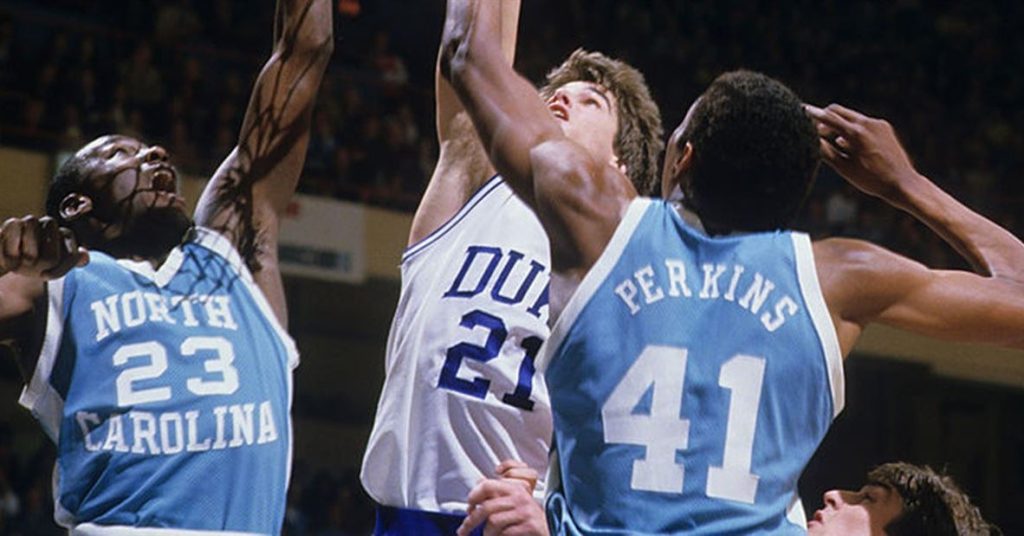Scott Whisnant will be signing his memoir, Tar Heel Bred, from 5-8 p.m. on Saturday, June 14, at Four Corners restaurant in Wrightsville Beach. Order the book here.
***
The Game
The 1984 season showcased what many consider college basketball’s most thrilling matchup: a top-ranked, undefeated team led by legendary star Michael Jordan facing a rival program still developing its identity. This fierce game, played under intense emotions, concluded with North Carolina edging out Duke 78-73, marking a pivotal point in their rivalry.
Television Mystery
It’s fascinating to note that despite the significance of the game, it wasn’t broadcast on TV. The Charlotte Observer noted, “It was the kind of game that should have been on TV,” a sentiment highlighting how a stellar Carolina team played to a packed but exclusive crowd of 8,564 fans.
The Teams
The 1984 Tar Heels boasted talents like Michael Jordan, Sam Perkins, and other NBA prospects, gaining a 13-0 record heading into the game. Meanwhile, a struggling Duke team was trying to recover from a poor previous season, Shaping this encounter into a must-watch event.
Game Dynamics
Carolina initially surged ahead by ten points, but after Jordan faced foul trouble, Duke seized a narrow halftime lead. As the game intensified, key moments involved Carolina’s Kenny Smith propelling his team with crucial scoring, while the referees faced scrutiny from both coaches amid rising tensions.
Aftermath and Reactions
The game ended with a notable exchange in the media room, as both coaches had differing views on officiating. Krzyzewski’s accusations of a “double standard” sparked significant dialogue in sports media, leading to letters and investigations, reflecting the emotional and competitive stakes of the rivalry.
Legacy of the Rivalry
This game became a landmark in college basketball lore, not just for the skill on display but for escalating the rivalry between Duke and Carolina. Post-game discussions centered on Krzyzewski’s statements, indicating his evolution as a coach and the enduring competitive nature of the programs that would only intensify in the years to come.
Conclusion
Remarkably, the January 1984 clash remains the last Duke-Carolina game not aired on television, showcasing the uniqueness of its story in sports history. While the rivalry has only grown since then, that fateful night in Durham still stands timeless for those who experienced it firsthand.



